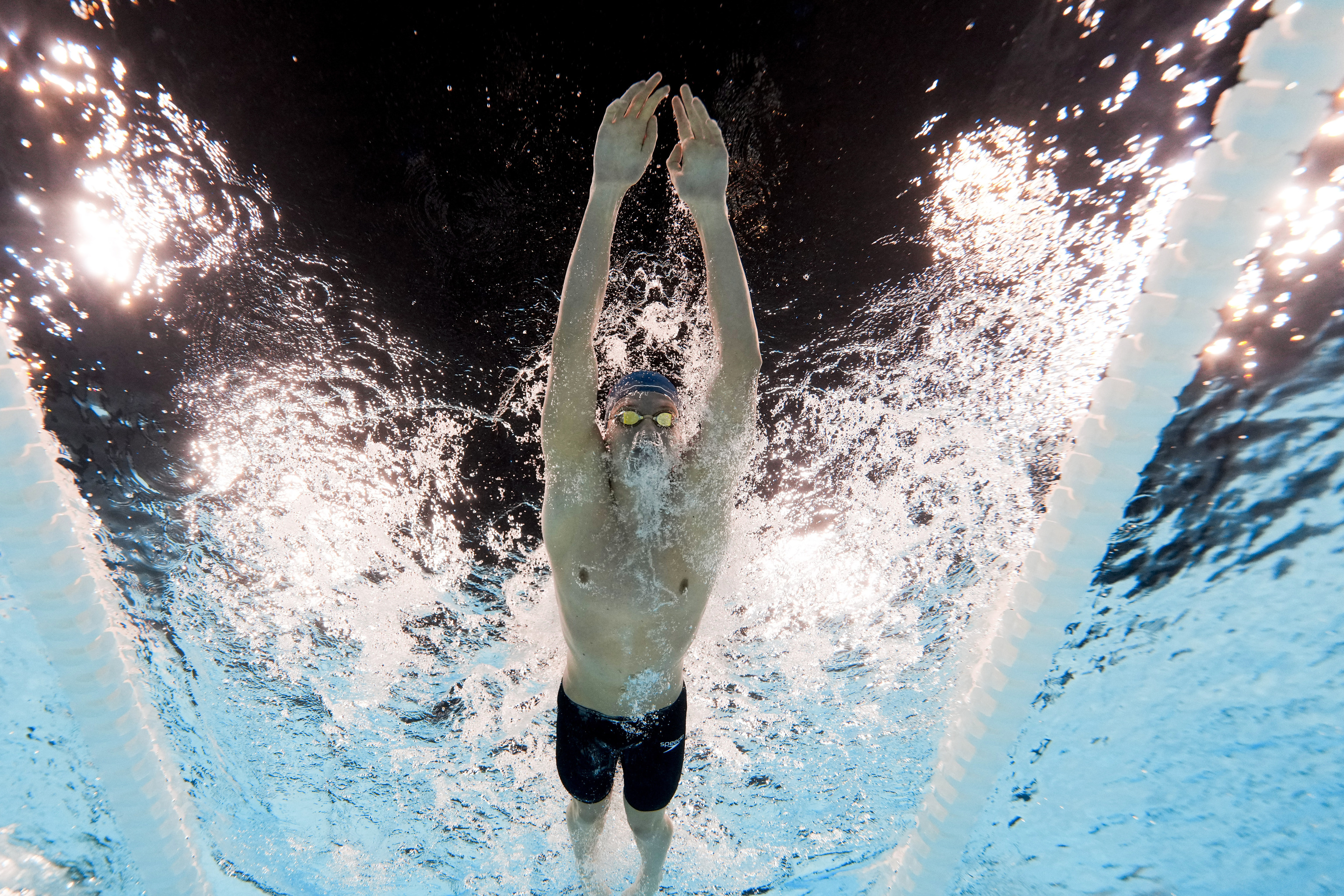When Léon Marchand emerged from the water in the last 50 meters of the butterfly, the futuristic La Défense believed it was prey to a tidal wave. It was like the butterfly effect in chaos theory, where a flap of the wings can cause a seismic movement, but in flesh and blood. The force of that flap is the force of the gold that is coming to meet the gold that resists. A crossing of paths in victory between members of two generations separated by five years, but one year for an Olympic champion is like five for a mortal. Marchand, at 22, is the incoming gold; Katie Ledecky, at 27, is the gold that resists.
The challenges they had set for these Games have similarities, each facing four events. Marchand, the 200 and 400 individual medleys, the 200 butterfly, and the 200 breaststroke. So far, he has swum the last three with a clean sweep: three golds. Ledecky, the 400, 800, and 1500 freestyle, and the 4x200 freestyle relay. After facing the first two, she has one gold and one bronze. It could be said, therefore, that it is an incomplete challenge for the American, but it would be unfair to a swimmer of her caliber. The one coming is Marchand, faster than Michael Phelps already. The one we are witnessing still belongs, at least deep down, to Ledecky. Paris venerates them. Los Angeles awaits them.
Marchand's challenge was not only to swim events that seem antagonistic, like the 200 butterfly and the 200 breaststroke, but to do so with just two hours apart, after having faced the semifinals in the morning with even less time in between. The butterfly shows his extraordinary speed. The breaststroke, the best underwater swimming, thanks to his long, almost pubescent body, which offers less resistance to the water. The combination results in the best current swimmer of individual medleys and, looking at the times, perhaps we can soon talk about the best in history. He already holds the world record in the 400 individual medley (4:02.50). He took it from Phelps.
The order of the finals was best for the Frenchman, as the semifinals had shown that he would face more opposition in the butterfly than in the breaststroke, due to the presence of Kristof Milak. The Hungarian is a water cyclops. In the semifinal that he also dominated, he was faster than Marchand. The same had happened in the heats. That's how the final started, with the Hungarian first in the three turns. As they came out of the third, Marchand pushed his underwater swimming and emerged like an orca. He had left something inside against which Milak could do nothing. Not even against the frenzied crowd. The Frenchman won the 200 butterfly in the fastest time in Olympic history (1:51.21) after doing the same in the 400 individual medley. The breaststroke, on the other hand, returned a dominant Marchand from start to finish.
For Ledecky, it was easier. The struggle she experienced in the 400 freestyle disappeared when she increased the distance. The American is a distance swimmer, but a very fast one, as evidenced by her victory in the 200 freestyle at her country's trials. However, in the current Olympic scene, it is not enough against the powerful Australian women's team. It's not just Ariarne Titmus, who already defeated Ledecky in Tokyo. Trying again says a lot in favor of the American, who could have focused on the longer distances, from the 800 to the 1500. Instead, she accepted the challenge. Comfort is not for champions, not for true champions.
In the 1500, the American sets an unsustainable cruising speed for the rest and finishes in 15:30.02. Paris witnessed her dominance and did so with pleasure, despite cheering for the Frenchwoman Anastasia Kirpichinkova, although La Défense did not get as excited as with Marchand, the leader of a French team climbing in the medal table. French swimming, with a deep Olympic tradition, finds a new reference since Laure Manadou, with three medals (gold, silver, and bronze) in Athens 2004, at just 18 years old. The swimmer from Toulouse has already surpassed that in Paris.
Ledecky also embodies the leadership of a declining American swimming team in Paris. The shadow of Phelps is long, very long. The 100 freestyle, held yesterday, crowned champions other than the stars and stripes. Caeleb Dressel, celebrated in Tokyo with five golds, couldn't even qualify for the event in the trials upon his return after battling depression.
Ledecky's gold is the eighth of her career and her 12th Olympic medal. If she dominates the 800 freestyle, something predictable, and the 4x200 freestyle, less within reach due to the opposition from the Australians, she would surpass Larissa Latynina, with nine golds, as the most decorated woman in Olympic history, a feat that could have been achieved by Simone Biles if her mind hadn't said enough in Tokyo. Ledecky never stops, she continues and continues, like her strokes.
